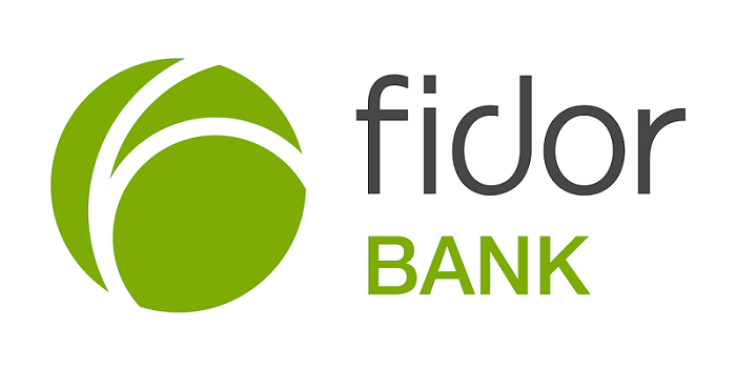Matthias Kröner CEO of Fidor Bank: Why isn't bitcoin being executed by banks?

So far Fidor Bank of Germany is the only mainstream banking operation bold enough to put its money where its mouth is in respect of cryptocurrency.
Fidor's charismatic chief executive Matthias Kröner calls bitcoin "a natural part of the digital lifestyle".
Fidor Bank, which was granted a full European banking licence in 2009, this year partnered with German bitcoin exchange bitcoin.de to provide "bitcoin express". The service is instantaneous and provides users with €100,000 deposit insurance on transactions by virtue of being once removed from a regular (and regulated) bank account.
IBTimes asked Kröner why Fidor is so far ahead of other banks.
He said: "When we approach an issue we ask ourselves, 'why can't this be done any better', or 'is that really the final solution', or if there is a segment like the crypto issue, 'why is this not being executed by a normal bank?'"
"We simply think that everything which is coming along with crypto or even bigger with the blockchain is a more or less a natural part of the digital environment or the digital lifestyle.
"It is, as always, not a good thing to ignore or exclude important parts of a certain lifestyle once your customers are executing this lifestyle."
Kröner is probably as well qualified as anyone to predict when a regulatory tipping point could be reached to allow bitcoin into bank accounts.
He said the regulators are "very fine with what we do, that we are supporting those businesses, or that we are servicing those businesses in a proper way".
"This gives them [regulators], for the first time, a first-hand insight into what is actually happening in this industry."
But he added that it remains a huge step for regulators to allow a bank to hold bitcoin "really in the account, in the sense of that this is depository money and this is on your balance sheet and in particular for the volatility reasons, they are afraid of the sustainability of this business". Also visit bitcoin evolution to learn more.
"Once the sustainability, or this doubted sustainability, is touching the balance sheet of a bank, this is where they get scared," he said.

Betting on regulations
IBtimes asked if the German Federal Financial Supervisory Authority, BaFin, was perhaps more amenable to bitcoin than its opposite numbers in Europe or the US. Kröner said in his experience the German regulators are not a homogenous group of people.
"With each person you have individual opinions, and this also counts for the regulators which means that there are some regulators - some people in the regulators - saying, 'we are absolutely not convinced of why we should have something like that [bitcoin]'.
"Others are definitely more agnostic and are saying, first of all we think the existing regulatory rules we have can cover that, and if you are working within these rules actually it's fine with us.
In terms of the tide changing, he said those regulators who hold a majority vote on excluding crypocurrency could be expected to be usurped in the future.
"Let me say, the group of regulators that currently has an overweight – would I bet on whether this is for good, like that? No I wouldn't."
Fidor operates partnerships with bitcoin.de and US-based bitcoin trading operation Kraken, and this is done on an exclusive basis for now.
"Our partners want us to focus on them, which created the situation - not intended by us - that they are paying us for exclusivity. I would not say this is for eternity, but currently it's the way it is."
He said a limit on partnering and the overall size of Fidor's operation at present is a good fit because it also allows the regulators to monitor closely all cryptocurrency activities at the bank and its exchange partners.
"I think this is for the sake of the customer isn't - you can be sure this is not a kind of garage offer somewhere in a country you have never seen before, where you cannot be sure one day the management will not take the money and run."
Kröner said the consensus is that an increasing amount of cybercrime will accompany bitcoin and this is why he ardently supports regulation and KYC.
"I definitely do not understand the fundamentalists in the crypto environment saying that anonymity or anonymous status is kind of sacred heaven. I want to know who potentially wants to fool me."
The flipside of the regulatory argument is embodied in the BitLicense debate going on in New York State, where bitcoiners are being forced out due to onerous, open-ended rules. And some established names – Kraken among them – have moved out in protest.
"That is Kraken's decision. We cannot help Kraken in the US but we can help in Europe. Kraken is open to do this in Europe like our German partners do.
"I know that this an uphill struggle. From my perspective, having a full European banking licence, I'm definitely defending this line saying, you need to regulate this - in a constructive way.
"If it's unregulated, this is a grey market, and grey markets are always negative. You have to legalise it; banning is not an option."
Fidor hitting London
Fidor Bank is in the process of coming to London, the putative fintech capital of the world. A story in the Telegraph said this process has been hamstrung by the big sponsor banks – Barclays, HSBC, Lloyds and RBS – not accepting Fidor as a customer, so denying the challenger access to the UK's payment system.
Kröner clarified the issue by saying it was about the speed of progress and not about a lack of support.
"If we say 'let's do this quickly' we mean like in the next five minutes; if they [big agency banks] say we do it quickly they mean within the next five months. Which I absolutely understand - each of them is a big organisation.
"Besides the matter of speed, actually we are very satisfied with the process. It's a step by step journey and they take it very seriously."
"We absolutely aim to be in the UK as a bank in 2015. That's for sure."
Kröner is known for being outspoken about the politics of the banking system. During an after-dinner address to the industry he dramatised the financial crisis of 2008 in terms of Hamlet – complete with a skull to evoke the death of trust in the system.
Regarding the UK's approach to allowing access to the payments architecture he said: "I am not complaining about the individual agency banks, but all in all one has to question this system of an agency bank being the doorman to a public payment rail.
Kröner pointed out that in Germany this is controlled by the Bundesbank, the equivalent of the Bank of England. He said organising the onboarding to the local payment rails is a state sovereign act.
"This is a basic right of people. This is like breathing air. Is it a good thing to privatise that?"
Fintech and Germany
A press release about the Fidor-bitcoin.de partnership hailed it a step forward for German fintech. So is Germany giving London a run for fintech supremacy?
Kröner said: "Personally I really try to convince politicians there is a point to having good cryprocurrency regulation and that this could be something like a local advantage in an international competition.
"But believe me, they do not understand what I am telling them – and that is the friendliest way I can say this.
"In the total digital sense, our politicians are the biggest local disadvantage we have. We have parliament which is organised in a way that they are too stupid to secure their IT systems.
"They got hacked and it has cost them half a billion to replace the full infrastructure because they cannot fine the malware.
"This is proof of their total understanding of the digital environment. What are you going to say to them? It's impossible."
© Copyright IBTimes 2024. All rights reserved.







